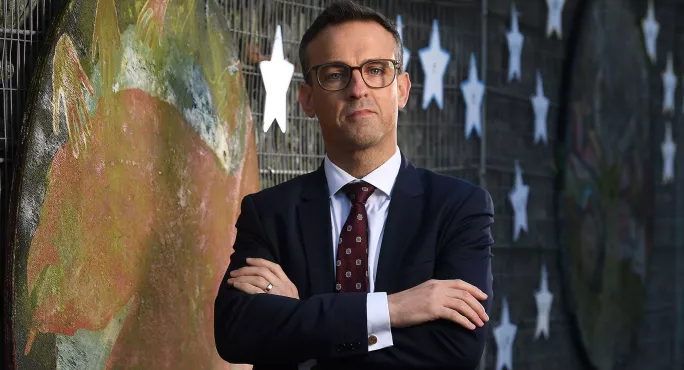The Department for EducationŌĆÖs advisory group on inclusion has had its work extended until April 2026, the groupŌĆÖs chair confirmed today.
Speaking at the Festival of Education in Berkshire, Tom Rees, who chairs this government expert panel, announced that the group was continuing.
Mr Rees, who is CEO of Ormiston Academies Trust, which has 44 schools, was appointed as the DfEŌĆÖs adviser on inclusion in November last year.
In January the DfE announced that a panel of advisers led by Mr Rees would be meeting monthly to look at how to improve mainstream education outcomes and experiences for children and young people with special educational needs and disabilities (SEND).
ŌĆśInconsistencyŌĆÖ in SEND training
Since taking office, the Labour government has signalled that promoting inclusion in mainstream schools is central to its plans to reform support for pupils with SEND.
As part of his work for the DfE, Mr Rees has led an Inclusion in Practice group, which has called for evidence of good practice in promoting inclusion in mainstream schools.
The group produced a report this week that identifies key principles that underpin an effective inclusive education in mainstream schools.
These include expert teaching, targeted support and ensuring that schools get to know pupils well, particularly at points of transition.
The report also warns that there is inconsistency in the ŌĆ£training, support, evidence-based guidance and resources that schools are navigatingŌĆØ on inclusion.
However, in a talk at the Festival of Education at Wellington College today, while Mr Rees acknowledged that there was agreement that more training was needed, he said there was less clarity over what that training should look like.
ŌĆ£There are questions around what the content would be, what the most useful knowledge insight would be for teachers and teaching assistants, where would you target that training, and so on,ŌĆØ he said.
ŌĆśConflictingŌĆÖ guidance
Speaking to Tes after the session, Mr Rees said that the variability in training means that ŌĆ£school leaders and school teachers are trying to make sense of itŌĆØ.
He added that the different SEND guidance on offer to teachers could be ŌĆ£quite confusingŌĆØ and ŌĆ£conflictingŌĆØ. He described it as ŌĆ£quite a difficult professional space to operate inŌĆØ.
Mr Rees added: ŌĆ£One of the things I think we should look to achieve through this reform is much better quality and better use of evidence in underpinning that advice, training and development.ŌĆØ
Mr Rees, who previously worked for Ambition Institute, said that the sector could ŌĆ£learn a lotŌĆØ from the reform of initial teacher training.
ŌĆ£We have seen reformed initial teacher training and professional qualifications. And the confidence that we have when we send staff to do the Early Career Framework or initial teacher training is that the training theyŌĆÖre getting is built on really solid foundations of evidence,ŌĆØ he said.
The inclusion group chair also told Tes that he was interested in the ŌĆ£complex web of commissioningŌĆØ of specialist provision.
Mr Rees said: ŌĆ£There is big variation in how specialist provision is resourced across the country...weŌĆÖre also interested in this complex web of commissioning where you have special schools, special units, satellite provisions, lots of different connected threads.ŌĆØ
You can now get the UKŌĆÖs most-trusted source of education news in a mobile app. Get Tes magazine on and on





